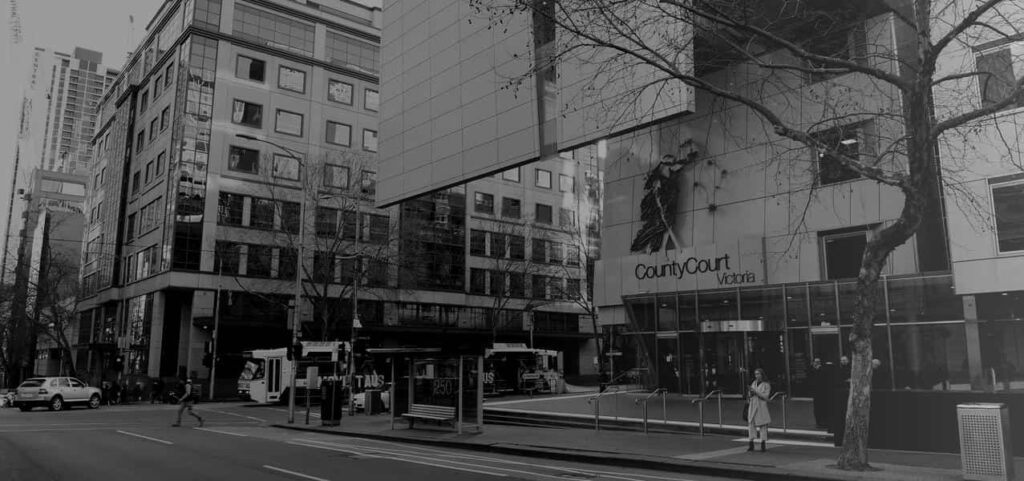Understanding your rights during police searches in Victoria is crucial for safeguarding your freedoms and ensuring proper legal processes are followed. Police have the authority to conduct searches under specific conditions, but knowing the extent and limitations of these powers can significantly impact the outcomes of such interactions. This page aims to outline the scenarios under which you might be searched, the protocols police must adhere to, and the legal recourse available if your rights are infringed.
Engaging with accredited legal professionals is vital. Their expertise in navigating the complexities of criminal law in Victoria ensures that your rights are not only understood but also vigorously defended. Whether you are subjected to a pat-down, vehicle search, or a more intrusive search, having knowledgeable counsel can provide the reassurance and support needed to manage these challenging situations effectively.
Understanding Your Rights
In Victoria, everyone is entitled to certain fundamental rights when it comes to police searches. It is important to understand these rights to ensure they are respected and upheld during any interaction with law enforcement. The law stipulates specific conditions under which police can perform searches on individuals, vehicles, or properties. Typically, police need a warrant to carry out a search; however, there are exceptions where searches can be conducted without one, especially if there is a reasonable suspicion of illegal activity.
Your rights during a police search include:
- Being informed of the reason for the search.
- Knowing the officer’s name and their station.
- Confirmation of whether the search is under a warrant or a specific legal provision.
- If a warrant is being used, you have the right to inspect it before the search begins.
- During the search, police are required to:
- Conduct themselves professionally and respectfully.
- Adhere to legal standards designed to protect your privacy and dignity.
Given the complexities of search laws and the nuances of individual rights, consulting with a legal professional can provide you with tailored advice and ensure that your rights are fully protected.

When Can Police Search You?
With a Warrant
In Victoria, the law specifies certain conditions under which police are required to obtain a warrant before conducting a search. Understanding these scenarios is crucial as it directly impacts your privacy and legal rights. A search warrant is a legal document issued by a court that authorises police to conduct a search of a specific place, vehicle, or person. It is typically required when there is no immediate need to act to prevent crime or immediate risk.
Key aspects of a search warrant include:
- Specificity: A warrant must specify the location to be searched and the items or individuals sought. This is to prevent any unnecessary invasion of privacy.
- Basis for issue: The warrant is issued based on reasonable grounds, where there is sufficient evidence to suggest that a crime has been committed, and that evidence of the crime is likely to be found at the location described in the warrant.
- Duration: Warrants have a limited validity period, and the search must be conducted within this timeframe.
Your rights during a search with a warrant include:
- Right to inspect the warrant: Before a search begins, you have the right to inspect the warrant to ensure it is valid and correctly specifies the scope of the search.
- Observation of the search: You are entitled to observe the search as it happens, provided you do not obstruct the process.
- Protection of dignity and privacy: Searches must be conducted in a manner that respects your dignity and privacy as much as possible, considering the circumstances.
It is important to note that while police must adhere to the specifics of the warrant, they are also permitted to seize any illegal items they inadvertently discover during the search. If you believe that a search conducted with a warrant has overstepped legal boundaries or violated your rights, it is crucial to seek legal advice promptly.
Without a Warrant
In certain situations, Victorian law allows police to conduct searches without a warrant. These exceptions are specifically designed to address immediate public safety concerns and urgent risks, ensuring that law enforcement can act swiftly to prevent harm or crime without the delay of obtaining a warrant. Understanding these conditions can help you comprehend the extent of police powers and your rights during such searches.
Circumstances where police can search without a warrant include:
- Search by consent: Police can ask for your permission to search. If you say yes, the agreement should be put in writing.
- Possession of illegal substances, weapons or graffiti materials: Police are authorised to search an individual in public if there is reasonable suspicion that the person possesses illegal drugs, weapons or materials used to make graffiti. The search can be of you, anything you are carrying or your vehicle. This does not require a warrant but must be based on specific and articulable facts.
- Public safety & designated areas: In scenarios where public safety is at risk, such as during large public gatherings where there is a credible threat of violence or illegal activity, searches may be conducted without a warrant. If a public space has been declared a ‘designated area’, police may search you, your bags, or your vehicle for weapons. A senior police officer can make an area a designated area for a period of 12 hours, based on criteria such as past violence or disorder.
- Immediate danger: If there is an immediate threat to life or safety, police can enter premises without a warrant to address the threat. This could involve situations such as imminent violence or the suspicion of serious criminal activities taking place.
- On arrest: If you have been arrested police can perform a search as part of the arrest process without needing to obtain a warrant first.
Your rights during a warrantless search include:
- Asking for the reason: You have the right to ask the officer why you or your property is being searched.
- Identification of the officers: Police must identify themselves, provide their station, and explain their grounds for conducting the search.
- Minimising intrusion: While searches without a warrant are legally permitted under certain conditions, they must be conducted in a way that minimally intrudes on your privacy and dignity.
If you believe a search was conducted improperly or without adequate legal basis, it is crucial to seek immediate legal advice.
Special Circumstances for Vulnerable Groups
In Victoria, the law recognises that vulnerable groups such as youth, minorities, and others may require additional protection during police searches. These provisions are designed to safeguard the rights and dignity of individuals who may be at increased risk of marginalisation or misunderstanding during legal procedures.
Understanding these protections and knowing how to assert them is crucial. Contacting a legal professional can make a significant difference in managing these interactions with law enforcement effectively.
Types of Personal Searches
Pat-down Search
A pat-down search, often conducted by police to ensure safety and detect concealed items, is a superficial examination of an individual’s outer clothing. In Victoria, such searches are legally permissible when police have reasonable grounds to suspect that an individual may be carrying weapons, stolen items, drugs, or other illegal substances. The key legal boundaries for these searches are clear: they should be conducted in the least invasive manner possible and respect the individual’s dignity.
During a pat-down search, individuals have the right to:
- Be informed: Police must tell you the reason for the search and must conduct the search in a public place where possible, unless privacy is requested.
- Request an officer of the same sex: You may request the officer conducting the search to be the same sex as you (unless this is not reasonably possible).
- Witness presence: You can request the presence of a witness during the search.
Understanding these rights can help you respond appropriately and assert your rights respectfully. If you believe a pat-down search has exceeded its legal scope or was conducted inappropriately, contacting a legal professional can provide you with guidance and help to address the issue legally and effectively.
Strip Search
In Victoria, strip searches are subject to stringent legal limitations to protect individual rights and dignity. These searches may only be conducted under specific circumstances where police believe it is necessary for safety reasons or to find evidence of a serious crime. Legally, strip searches should not be performed in public and must be conducted by officers of the same gender as the individual being searched.
Key conditions for conducting a strip search include:
- Serious suspicion: Police must have reasonable grounds to believe that the search is necessary to discover concealed weapons or illegal substances that could not be found through a less invasive search.
- Privacy: The search must be conducted in a private area with no opposite-gender officers present unless specifically requested for safety reasons.
- Minimality: Only the minimum amount of clothing should be removed, and the search should be as quick and respectful as possible.
Rights during a strip search:
- Right to explanation: Individuals must be informed of the reason for the search.
- Right to dignity: Searches must be conducted in a way that minimises embarrassment or distress.
Understanding these conditions and your rights can help you respond appropriately if you are subject to a strip search. If you feel your rights have been violated during such a search, it is advisable to seek legal advice.
Internal Body Search
Internal body searches are among the most intrusive forms of searches conducted by police in Victoria and are governed by exceptionally stringent conditions. These searches are only permissible when there is a clear and justifiable suspicion that serious offences are involved, such as drug smuggling. Such searches require not only a higher threshold of legal justification but also a formal authorisation process, typically involving a court order.
Key legal requirements for an internal body search include:
- Court order: A specific court order is required unless you have agreed to the search.
- Medical professional involvement: The search must be conducted by a qualified medical professional to ensure the health and safety of the individual being searched.
- Respect for dignity: The utmost care must be taken to respect the dignity and privacy of the person subjected to the search, with procedures performed in the least invasive manner possible.
Individual rights during an internal body search:
- Right to legal representation: Individuals have the right to contact a lawyer before the search is conducted.
- Right to medical advice: The individual has the right to consult with a medical professional regarding the implications of the search.
Due to the sensitive nature of internal body searches, it is crucial for those subjected to or potentially facing such a search to seek immediate legal advice.
After the Search: Steps to Take If Your Rights Have Been Violated
Filing a Complaint
If you believe your rights were violated during a police search, it’s important to take action by filing a complaint. This process allows you to formally raise your concerns about misconduct or breaches of conduct by law enforcement. In Victoria, you can file a complaint directly with the police station involved, or with the Independent Broad-based Anti-corruption Commission (IBAC), which oversees police conduct.
Steps to file a complaint include:
- Documenting the incident: Record all details of the search, including time, location, the officers involved, and the nature of any infringements.
- Seeking legal advice: Before filing a complaint, it’s advisable to consult with a law firm experienced in police conduct issues to ensure your complaint is effectively articulated.
Submitting the complaint: Complaints can be lodged online, via mail, or in person at a police station or the IBAC office.
Slades & Parsons are available to take your call 24 hours a day.
We are highly experienced in all aspects of criminal law. For further assistance please do not hesitate to contact our office.

